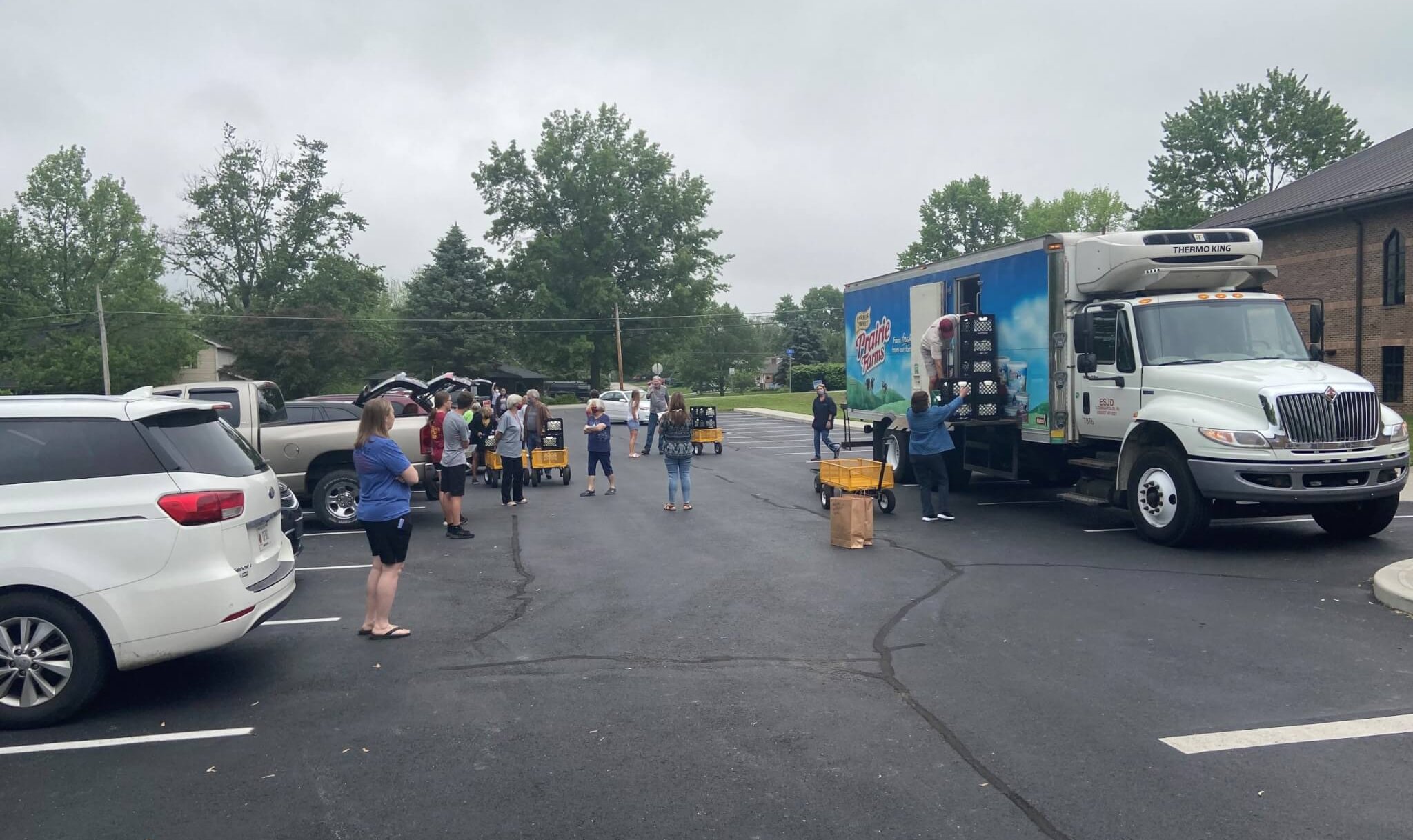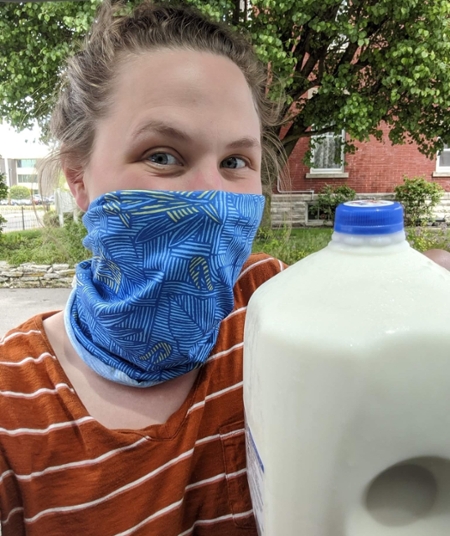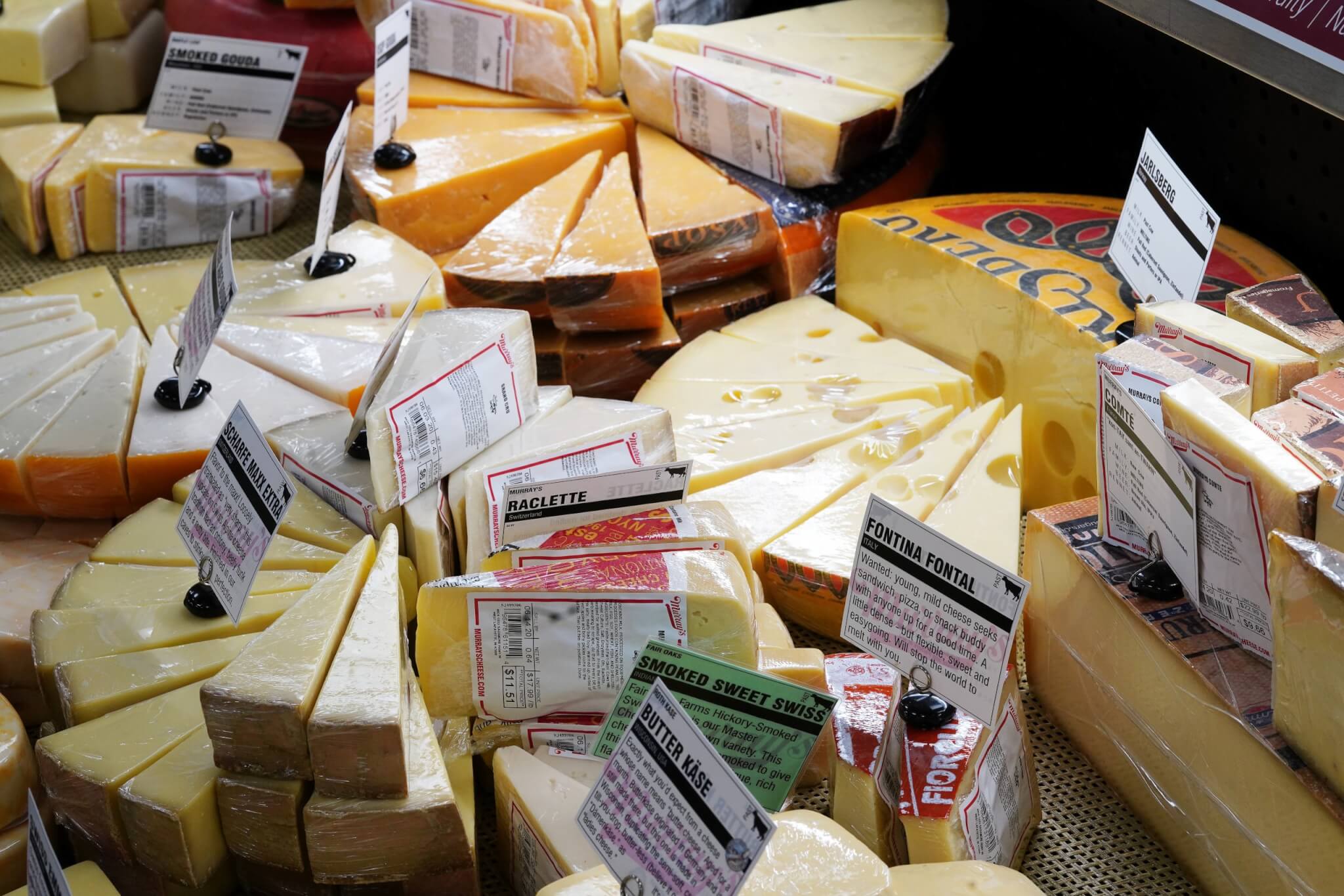Celebrating dairy products and community in Indiana
S
ince 1937, it has been a national tradition to celebrate dairy every June. Originally organized by a group of grocers to promote the distribution of milk in the heat of summer, the tradition has expanded to celebrate all dairy products and the people behind them. While the world grapples with radical change, there is no better time to celebrate the gathering of people and nutritious food around the table.
As for the rest of the world, COVID-19 has caused many challenges for dairy producers. News reports shared stories of farmers dumping milk while consumers began experiencing buying limitations for dairy and meat products in grocery stores.


educator, Purdue Extension - Delaware County, delivers
milk to area food pantries.
Jackie Boerman, assistant professor of animal sciences at Purdue University, explained that while there was never a shortage of milk, milk needs shifted, causing processing, logistics and transportation issues.
“It takes 10 pounds of milk to make one pound of cheese. Due to restaurant closures, specialty cheese demand fell, causing even more fluid milk to flood the market,” explained Boerman. This milk could not be easily re-routed to other dairy products because there was reduced demand in several dairy products.
Nicole Widmar, associate department head and professor of agricultural economics at Purdue, said the rapid shift from away-from-home product consumption to in-home consumption caused logistical and packaging problems, resulting in supply-chain bottlenecks. Unfortunately, milk production reached its peak season at this same time.
“The fundamental problem is that there must be a processing and storage home for milk at the precise time that it is needed or there isn’t anywhere for it to go,” said Widmar. “Given the massive changes in buying patterns with COVID-19, such as the massive decrease in demand for milk served in schools and dairy products in restaurants, there was a bottleneck in the market in terms of capacity to process milk for other uses.”
However, the agricultural community saw this challenging situation as an opportunity to help their communities. The United States Department of Agriculture (USDA) Farmers to Families Food Box Program allowed the USDA’s Agricultural Marketing Service (AMS) to purchase fresh produce, dairy and meat products from national, regional and local suppliers affected by COVID-19 and provide those products to food pantries and non-profits. Purdue Extension teamed up with Prairie Farms to provide the liquid milk surplus to local food pantries and non-profits. Due to Purdue Extension’s broad presence in all 92 Indiana counties, milk has been widely distributed across the state.
Laurynn Thieme, agriculture and natural resources educator for Purdue Extension - Delaware County, and Lindsey Cox, nutrition education program community wellness coordinator for Purdue Extension – Delaware and Blackford Counties, coordinated between Prairie Farms and area food banks. Since they began two weeks ago, over 2,000 gallons of milk have been distributed to food deserts in Delaware and surrounding counties in East Central Indiana. More milk is scheduled to arrive in the coming weeks.
Melinda Duckett, nutrition education program community wellness coordinator, Purdue Extension - Hendricks, Putnam and Parke Counties, also connected with Prairie Farms to distribute milk to local food pantries and non-profits, resulting in over 1,800 gallons of milk delivered in two weeks.
“We want to extend a huge thank you to Prairie Farms for partnering with Purdue Extension. Pantries often have difficulties getting milk because it is hard to store. Milk is a great source of protein and we are grateful that through this partnership we can connect milk with the people who need it,” said Duckett.
Boerman encourages consumers to buy dairy products however you can.
“Some farms sell direct to consumers, but buying dairy at the grocery store also directly benefits Indiana dairy farmers,” said Boerman. “Likewise, reach out to your local Purdue Extension office to find solutions to get more dairy products into the hands of people who need it.”






